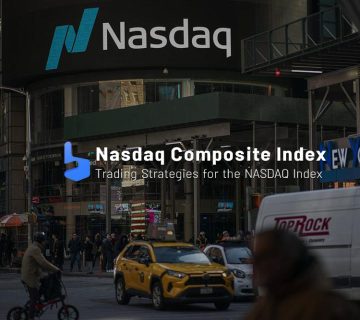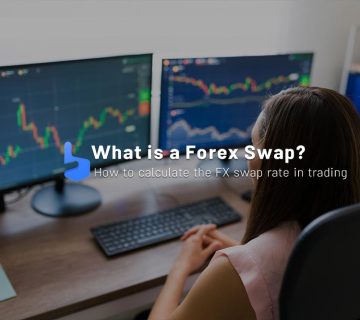What you are about to read:
Becoming a professional trader in the dynamic world of financial markets is a goal shared by many enthusiastic investors and individuals. However, the path to achieving a professional status in trading, especially in the forex market, is not without challenges.
A professional trader is someone who has honed their skills, developed strong trading strategies, and mastered the art of navigating market complexities. In this article with Brokerland, we explore the meaning of being a professional trader, the distinguishing features that set them apart, and provide practical insights on how to begin the journey of becoming a trader.
Who is a professional trader?
A professional trader in the forex market is someone who has dedicated themselves to trading currencies as their primary source of income, rather than part-time trading for profit. They demonstrate consistency and expertise in navigating the complexities of the forex market.
These individuals typically possess a combination of experience, skills, and knowledge that distinguishes them from amateurs. Professional traders often have a deep understanding of market principles, technical and fundamental analysis, price action, and risk management principles honed through years of practice and study.
One distinguishing feature of a professional trader is their ability to profit from activities based on a consistent approach, regardless of market conditions. They have a track record of success and often achieve higher returns compared to average market participants. Professional traders approach trading with discipline and adhere to a well-defined trading journal and plan, which includes clear entry and exit strategies, strict risk management rules, and a focus on capital preservation in the long term.
Professionals also tend to commit full-time to trading and view it as a profession rather than a hobby or part-time endeavor. They dedicate significant time and effort to analyzing market trends, researching trading opportunities, and refining their strategies through testing them with backtesting or using strategy testers.
Professional traders often have access to advanced trading tools such as Ichimoku equilibrium trading, pivot point indicators, RTM price action style, Smart Money method, or even forex trading with AI or GANN theory, research resources, and market data that they use to gain a competitive edge in the markets.
Examples of professional traders in forex include managers of hedge funds, proprietary traders at financial institutions, and independent traders with a proven track record and established reputation in the industry.
These individuals have demonstrated the skills, experience, and discipline necessary for success as pro traders in the competitive world of forex trading, setting them apart from amateur traders who may lack the same level of commitment, expertise, and stability.
What is the difference between a professional and amateur trader?
Professional traders and amateurs differ in several key aspects:
Experience and skill: Professional traders typically have years of experience and a deep understanding of financial markets, trading strategies, risk management techniques, and market dynamics. They often undergo rigorous forex learning to enhance their skills. On the other hand, amateurs may have limited experience and knowledge, often relying on intuition or basic trading principles without a comprehensive understanding of the complexities of the trading world.
Trading approach: Professional traders approach trading in a systematic and disciplined manner. They develop trading plans and adhere to them, conduct thorough analysis before making decisions, and consistently follow their risk management rules. Amateurs may be more prone to impulsive or emotional decision-making based on FOMO or fear, greed, or overconfidence, which can lead to inconsistent results and losses.
Risk management: Pro traders prioritize risk management and capital preservation. They carefully manage their positions, set appropriate stop-loss orders to prevent stop hunting, and use proper position sizing to limit potential losses and avoid stop out and margin calls. Professional traders understand the importance of capital preservation in the long term.
Amateurs may overlook risk management principles, risk excessive capital in trades, or neglect to use stop-loss orders, which can lead to significant losses and account blowouts.
Resources and tools: Professional traders often have access to advanced tools, research resources, and market data. They may use sophisticated trading platforms, connect their accounts to MQL website, employ algorithmic trading systems, forex expert advisors, and custom indicators to gain a competitive edge in the markets. Amateurs may have limited access to such resources and rely on basic tools and free online information, which may not provide them with a comprehensive understanding of market dynamics.
Mindset and discipline: Professional traders have a disciplined mindset and focus on long-term success. They understand that trading is a marathon, not a sprint, and are willing to dedicate the necessary time and effort to achieve their goals. They remain calm and composed during market fluctuations and kill zones and stick to their trading plans. Amateurs may lack the discipline and patience required for successful trading, often succumbing to emotional biases or chasing quick profits without proper planning or preparation.
Generally, while both professional traders and amateurs participate in financial markets, differences in experience, approach, risk management, resources, and mindset distinguish their ability for sustained profitability from trading activities.
How to Become a Professional Trader?
Becoming professional in trading is a journey that requires time, education, practice, and discipline. Here is a comprehensive guide along with some tips to help you on the path to becoming a professional trader:
- Educate Yourself: Start by gaining a comprehensive understanding of the forex market, including its mechanics, participants, types of currency pairs in forex, and factors influencing exchange rates. Begin your journey to becoming a professional trader by learning basic trading concepts such as technical analysis, sentiment analysis, fundamental analysis, and risk management principles. Study core trading concepts like pips and lots in forex, balance and equity, margin, leverage, slippage, or swaps. There are numerous resources available, including books, courses, webinars, and online tutorials that can help you learn the fundamentals of forex trading and become a professional trader.
- Create a Trading Plan: Create a precise trading plan that defines your trading goals, risk tolerance, trading strategy, and money management rules. Your trading plan should include criteria for entering and exiting trades, as well as guidelines for position sizing and risk management. Having a well-defined trading plan will help you stay disciplined and focused during the trading process.
- Practice with a Demo Account: Before risking real money, practice trading on a demo account to gain experience and test your trading strategy in a risk-free environment. Most forex brokers including Windsor Broker, IronFX, LiteForex, OpoFinance, Amarkets, OmegaFinex, and Capital Extend all offer demo accounts that allow you to trade with virtual money using real-time market data. Use this opportunity to refine your trading skills, experiment with different strategies, and gain confidence in your ability to execute effective trades as a professional trader.
- Start Small: When you’re ready to start trading with real money, begin with a small account and only risk a small percentage of your capital in each trade. This will help you manage risk and minimize losses while gaining experience and building confidence in your trading abilities. As you become more adaptable and profitable as a professional trader, you can gradually increase your capital and position size.
- Continuous Learning and Improvement: The forex market is constantly evolving, so it’s important to stay updated on market developments, forex news, and trading strategies. By reading books, participating in webinars, following market analysis, and learning from experienced traders, continuously educate yourself and become a professional trader. Maintain a forex statement to track your trades, analyze performance, and identify areas for improvement.
- Effectively Manage Risk: Risk management is crucial for long-term success in forex trading. Never risk more than you can afford to lose on any trade, and use stop-loss orders to limit your losses. Additionally, to reduce overall risk, diversify your trading portfolio by trading multiple currency pairs and asset classes such as cryptocurrency or indices such as US dollar index or NASDAQ. As a professional trader, stick to your trading plan and avoid emotional decisions like chasing losses or deviating from your strategy during periods of market volatility.
- Stay Disciplined and Patient: Successful forex trading as a professional trader requires discipline, patience, and emotional control. Stick to your trading plan, remain patient during periods of capital drawdowns or consolidation, and avoid emotional decisions based on fear or greed. Stay focused on your long-term goals and have confidence in your trading strategy, even during periods of market uncertainty or turmoil.
By following these tips and committing to continuous learning and improvement, you can increase your chances of becoming a professional trader in forex. Remember that success in forex trading requires time, effort, and perseverance, so stay motivated and never stop learning.
Summary
Becoming a professional trader in the forex market is a journey that requires dedication, education, practice, and discipline. This path is not for the faint-hearted, but for those willing to invest time and effort, the rewards can be significant. With continuous self-education, creating a strong trading plan, practicing with a demo account, effective risk management, and staying disciplined and patient, you can increase your chances of success in the competitive world of forex trading.
Remember, becoming a professional trader is not an overnight achievement, but rather a gradual process of growth and refinement. With perseverance and dedication, you can turn your passion for trading into a rewarding and fulfilling career.











